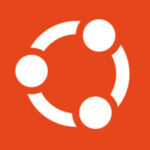Datical, Inc. today emerged from stealth mode and announced Datical DB which uses a patent-pending, data model approach for automating, simplifying and managing database schema change, configuration and complex dependencies as part of the application release process. Datical DB is based on Liquibase, the proven schema change open source project, which has been in development since 2006 and is used today by hundreds of organizations including Fortune 1000 companies.
Unlike silo’ed DBA tools that focus on improving SQL scripts, Datical DB eliminates manual change scripting and the errors that can result with automatic script authoring. The solution works within existing application release processes, using existing tools – versioning, archiving, managing and executing database changes “with” application code as it evolves through the See related release: New Study Shows First-Time Application Deployment Failures a Key Concern Among Large Enterprises.
With Datical DB, developers, DBA’s, DevOps, release and operations teams do not have to deal with SQL syntax and can forecast the impact of schema change in production environments, before they deploy. The solution provides a graphical user interface and easy to use wizards for quickly creating a model of schema from an existing database which can be simultaneously migrated to any environment and database such as Oracle, DB2, MySQL, SQL Server, Postgres “Database schema changes handled by manually writing SQL scripts are time-consuming and difficult to maintain. Errors can result in downtime, implementation delays, increased costs or worse – critical data loss,” said John L. Myers, senior analyst with Enterprise Management Associates – a Boulder, CO.-based analysis and consulting firm. “Datical’s automation tools minimize these risks and provide greater visibility into the database schema ‘develop-test-deploy’ release process.”
Customers with many diverse, complex database systems, such as W2O Group, can realize significant productivity and operational gains using Datical DB.
“We analyze large volumes of online interactions and personas to provide business intelligence for clients in verticals including health, technology, and consumer products. Datical DB gives our teams complete visibility into all of our relational database environments, and integrates seamlessly with our continuous integration process,” said Steve Blackmon – Director, Data
• Model/Forecast – Datical DB proactively forecasts the impact of database changes in production – or any other environment – before you deploy. No more scrambling to troubleshoot errors at deploy time, no downtime or lost data.
• Deploy – Datical DB deploys database schema changes to multiple databases and mixed environments simultaneously — Oracle, DB2, MySQL, SQL Server, Postgres and others, working with your existing release process, using your existing tools such as — IBM Rational, BMC BladeLogic, Jenkins, Puppet, Chef, TFS and more. No agents are required.
• Manage – Datical DB provides an automatic audit trail of database schema changes that have been applied over time in each environment. Built-in historical tracking and reporting make it easy to quickly look back after a change is made to understand the evolution of the data model at a glance.
• Troubleshoot – Datical DB provides visibility into schema differences between environments such as differing data types, missing columns, missing tables, foreign keys, etc., quickly identifying configuration-related problems. Datical DB also provides the ability to rollback automatically or manually.
“With Datical DB, development and operations groups can be confident that the database instances supporting their business-critical applications are in lock step, supporting your strategic path no matter where it’s headed — DevOps, Agile, Cloud, Big Data and more,” said Daniel Nelson, CEO and Co-Founder at Datical. “We’ve delivered a very easy-to-use solution that accelerates application releases, reduces time to market, eliminates downtime and lowers cost.”





